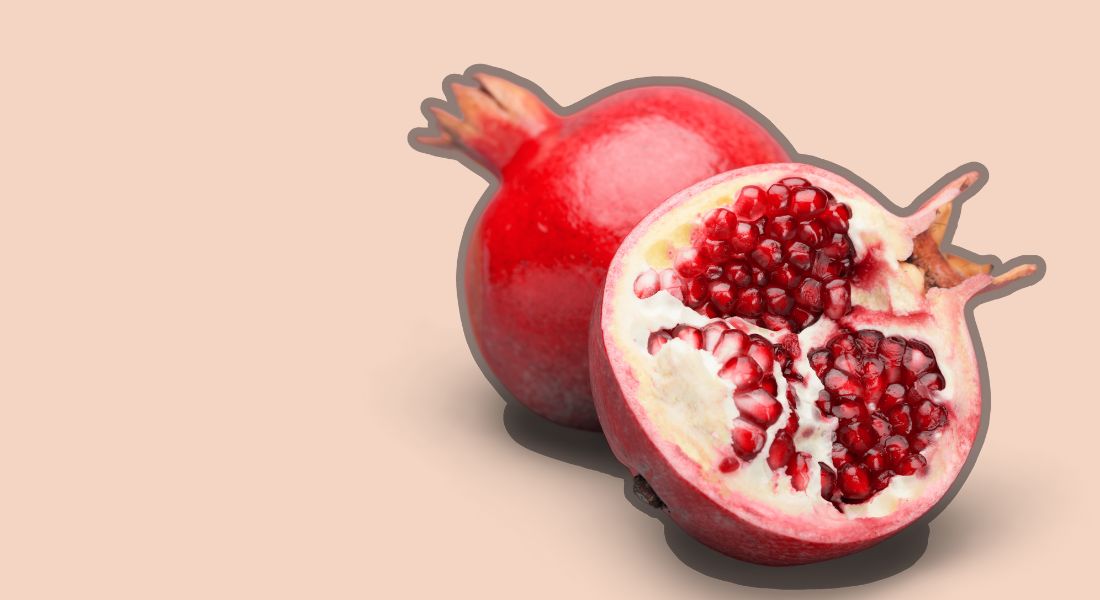A substance naturally occurring in i.a. pomegranates, strawberries and walnuts can improve memory and treatment of Alzheimer's disease, a new study conducted at the University of Copenhagen concludes.

Forgetfulness, difficulty finding words and confusion about time and place. These are some of the most common symptoms of Alzheimer's disease.
Now researchers at the University of Copenhagen have discovered that an ordinary fruit can help.
Alzheimer's disease is an incurable disease of the brain and the most frequently occurring type of dementia. About two thirds of people with dementia are diagnosed with Alzheimer's disease. Dementia often leads to functional impairment and eventually affects the parts of the brain responsible for motor control and breathing.
In Denmark, about 85,000-90,000 people have been diagnosed with dementia, and 50,000 of these are affected by Alzheimer's disease. Every year, approx. 8,000 Danes are diagnosed with dementia.
Source: Danish Alzheimer's Association.
"Our study on mouse models with AD shows that urolithin A, which is a naturally occurring substance in i.a. pomegranates, can alleviate memory problems and other consequences of dementia," says Vilhelm Bohr, who is Affiliate Professor at the Department of Cellular and Molecular Medicine at the University of Copenhagen and prevoiusly Department Chair at the US National Institute on Aging.
This is good news for patients with dementia - a disease that is difficult to treat.
"Even though the study was conducted on mouse models, the prospects are positive. So far, research has shown promising results for the substance in the muscles, and clinical trials on humans are being planned."
Substance improves brain function
The researchers previously discovered that a specific molecule, nicotinamide riboside (NAD supplement), plays a key role in neurodegenerative diseases such as Alzheimer's and Parkinson's, as it actively helps remove damaged mitochondria from the brain.
"Many patients with neurodegenerative diseases experience mitochondrial dysfunction, also known as mitophagy. This means that the brain has difficulties removing weak mitochondria, which thus accumulate and affect brain function. If you are able to stimulate the mitophagy process, removing weak mitochondria, you will see some very positive results," Vilhelm Bohr explains.
The results of the new study show that a substance found in pomegranates, urolithin A, removes weak mitochondria from the brain just as effectively as NAD supplement.
Possible preventive effect
The researchers still don't know how much urolithin A is needed to improve memory and alleviate symptoms of i.a. Alzheimer's.
"We still cannot say anything conclusive about the dosage. But I imagine that it is more than a pomegranate a day. However, the substance is already available in pill form, and we are currently trying to find the right dosage," Vilhelm Bohr says.
He also hopes the substance can be used for preventive purposes with no significant side effects.
"The advantage of working with a natural substance is the reduced risk of side effects. Several studies so far show that there are no serious side effects of NAD supplementation. Our knowledge of urolithin A is more limited, but as I mentioned, clinical trials with Urolithin A have been effective in muscular disease, and now we need to look at Alzheimers disease. ," he says and adds:
"If we are going to eat something in the future to reduce the risk of Alzheimer's, which we talk a lot about, we have to make sure there are no significant side effects."
The study, "Urolithin A improves Alzheimer's disease cognition and restores mitophagy and lysosomal functions", has been published in Alzheimer's and Dementia.






